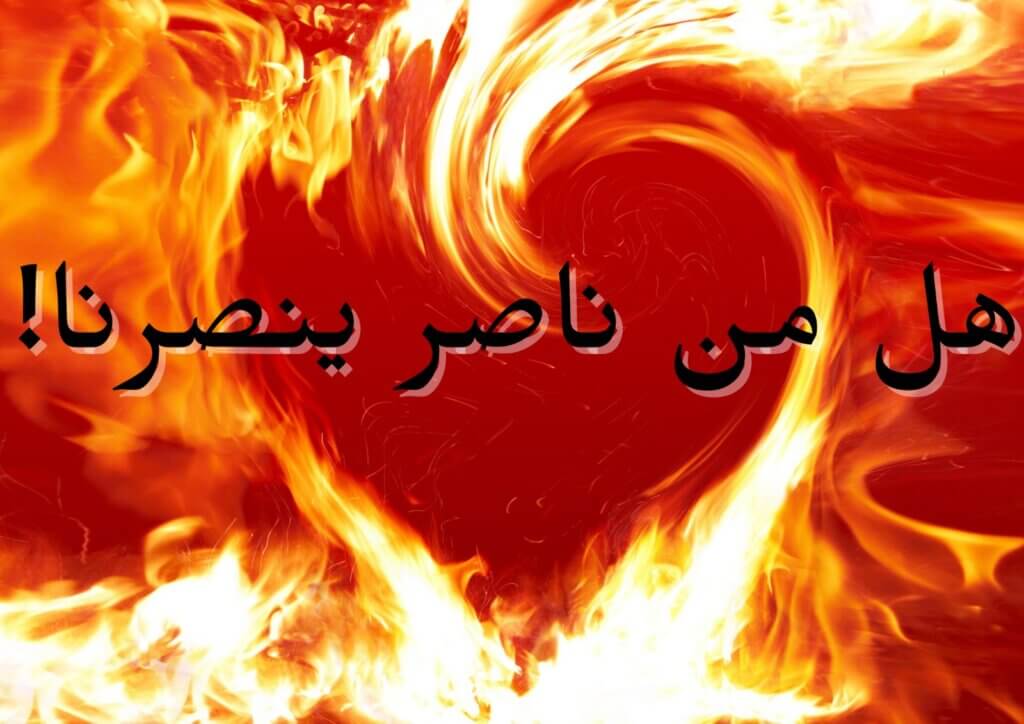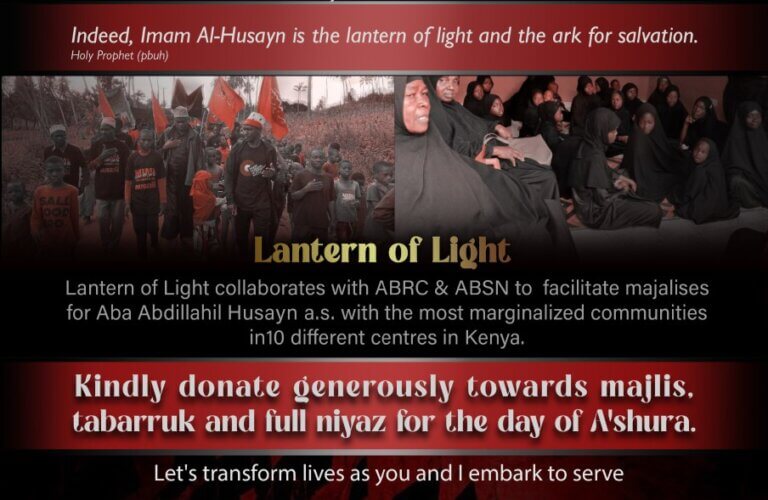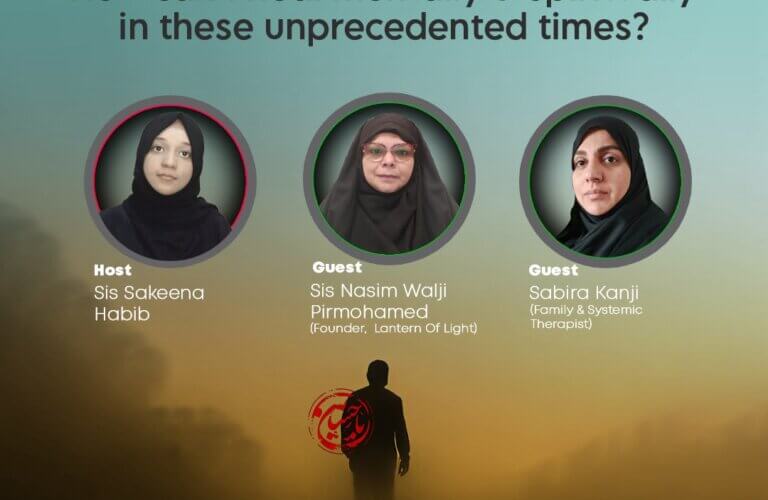“Hal Min Nasirin Yansurna?”- Is there anyone to help us?
By: Isha Sadiq Haider

In the vast tapestry of history, some stories etch themselves into our hearts, weaving together narratives of courage, resilience, and an unwavering fight against injustice. The heartrending tragedy of Karbala, where Imam Hussain ibn Ali, the grandson of the Holy Prophet Muhammad, stood alone against the forces of oppression, mirrors the ongoing struggle of the Palestinian people. This parallel narrative speaks of isolation, sorrow, and a longing for justice, compelling us to reflect on the shared essence of these stories.
Imam Hussain found himself in a daunting predicament as he stood alone in the scorching sands of Karbala, facing a formidable enemy that had denied him his basic rights and had veered far from the path of justice. In his unwavering commitment to the values of truth and righteousness, he uttered timeless words that continue to inspire generations: “I will never give Yazid my hand like a man who has been humiliated, nor will I flee like a slave.”
These words are not just a reflection of his personal resolve but a universal message against oppression. Similarly, the Palestinian people have long endured the injustice of occupation, dispossession, and marginalization. Their resistance embodies the spirit of Imam Hussain’s unwavering stance against oppression, as they stand alone in the face of adversity. Their resilience embodies the indomitable human spirit, standing unwavering in their quest for justice and freedom. Their resistance echoes Imam Hussain’s unyielding commitment in the face of overwhelming odds!
What makes this parallel all the more poignant is the unfortunate reality that, just as Imam Hussain’s plea, “Hal min Nasirin Yansurna?” which means “Is there anyone to help us?” or “Is there anyone to come to our aid?” was met with silence from those who should have supported him, the cries of the Palestinian people for solidarity often fall on deaf ears!
“Hal min Nasirin Yansurna?” was famously uttered by Imam Hussain during the tragic Battle of Karbala in 680 AD. Imam Hussain, along with a small group of his supporters and family members, faced the oppressive and overwhelming forces of the Umayyad Caliph Yazid. Imam Hussain’s cry, “Hal minnasirin yansurna,” was a poignant and desperate plea for assistance in the face of great injustice and tyranny. He called out for support, seeking help from anyone who would stand with him against the oppressive forces of the Umayyad Caliphate. This cry has come to echo the timeless struggle for justice and the call for help in the face of overwhelming odds, making it an enduring and universal expression of resistance against oppression.
While the echoes of Karbala remain unanswered, the Palestinians also continue to endure their isolation, yearning for help that is too often withheld. While Imam Hussain’s call was met with silence, the Palestinian plea is also met with indifference, diplomatic maneuvering, or empty rhetoric. The tragedy of Karbala and the Palestinian struggle bear witness to the lack of unity in the face of injustice.
In moments of solitude and despair, the teachings of the Prophet Muhammad come to light: “Whoever sees a wrong and remains silent is a silent devil.” These words emphasize that silence in the face of injustice is not an option, and the duty to stand against oppression is a shared one across borders and origins.
Imam Hussain, through his ultimate sacrifice, teaches us that the fight for justice must persist, even when we stand alone, forsaken by those closest to us. His martyrdom serves as a beacon of unwavering determination and the pursuit of a just cause. The Palestinian people, in their unwavering resistance, embody this commitment, reflecting the spirit of a nation that refuses to be silenced and yearns for a world where justice prevails.
In the poignant parallel of these narratives, we find a profound reminder of the universal human yearning for justice and dignity. As we contemplate the tragedy of Karbala and the ongoing Palestinian struggle, we must remember the timeless lessons they offer: the courage to stand alone against injustice, the resilience to endure, and the unwavering commitment to justice, even when the world remains silent.
In addition to raising awareness, there are three practical steps we can take to help the Palestinian people; and by embracing these solutions, we will stand in solidarity with the Palestinians and continue the legacy of Imam Hussain’s unwavering commitment to justice and compassion:
- Humanitarian Aid: Contribute to humanitarian organizations providing essential aid and support to Palestinian civilians in need. Imam Hussain said, “Give without remembering, and receive without forgetting.”
- Advocacy: Speak out and raise awareness about the Palestinian cause through peaceful advocacy and dialogue, echoing Imam Hussain’s call for justice and resistance against oppression.
- Education and Empowerment: Support educational initiatives that empower Palestinians to build a better future for themselves and their children. Imam Hussain reminds us, “Knowledge enlivens the soul.” By providing educational opportunities, we can help create a brighter tomorrow for the Palestinian people.
Moreover, to extend a helping hand to the Palestinians in their struggle for justice and freedom, we can take inspiration from the teachings of the Prophet Muhammad: “The best of people are those who are most beneficial to others.”
We can advocate for the rights of the Palestinian people, raise our voices in solidarity, and work tirelessly for a world where the cry of “Hal Min Nasirin Yansurna?” is met with a resounding “We are here, and we stand with you!” In doing so, we honor the legacy of Imam Hussain and uphold the principles of justice and compassion as exemplified by the Prophet Muhammad.





Comments